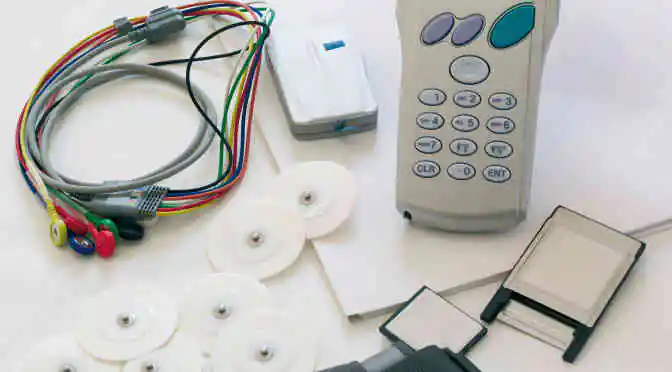In the past few decades, we have witnessed an array of product developments and technological innovations in the healthcare industry. From health monitoring devices to fitness tracking applications and several other diagnostic tools, all are paving the way to improving our health and preventing deadly diseases. However, in the context of diagnosing heart activities, Holter monitor has remained a revolutionary tool for more than half a century, thanks to the work of two persistent and creative men, Bruce Del Mar and Norman “Jeff” Holter.
Why is the Holter monitor central to medical heart care?
Holter monitors are portable heart monitoring devices that continuously monitors a patient’s cardiovascular activity over an extended period of time, typically 24 hours for symptoms that a physician cannot detect through a brief personal consultation. While this monitor was initially designed to observe variations in the normal cardiac rhythm, today, its use has further extended into heart rate variability studies, detecting pacemaker malfunctions and the diagnosis of abnormal cardiac symptoms.
 Paradigm shift toward preventive care
Paradigm shift toward preventive care
The healthcare industry is slowly evolving to ‘wholeheartedly’ accept the intervention from helpful technology. With technological advances and disruptive start-ups coming into play, healthcare is receiving all the backing needed to transform and stand tall in this journey of evolution. This changing healthcare ecosystem has empowered patients and created a reservoir of information about the conditions, results, and common practices, thereby allowing patients to monitor, track, and analyze their own health and fitness in real time.
The increasing awareness among people has helped them diagnose various diseases in the initial stages. Associatively, the 24-hour Holter monitors are widely being used by individuals to record abnormal heart activity. These monitors can constantly measure the electrical activity of the heart, and offer concise information about the same, throughout the day.
Rising demand for home-based monitoring of the heart
With the increasing instances of stroke, it becomes important for people to monitor their heartbeat at regular intervals. Hypertension remains undetected at initial stages, and people remain unaware of high blood pressure, leading to several heart problems. Therefore, more and more concerned individuals are now using the wireless Holter monitors at home to check their heartbeats on a regular basis.
Homecare practices have led to the easy management of patients with the benefits of saving their time and reducing expenses. Plus, they have also decreased the burden on hospitals. Evidently, the homecare segment has grown mainly owing to an increase in awareness about cardiac monitoring techniques and the ease of their usage and widespread acceptance in developed countries. Thanks to the constant development and advances, physicians can now can send patients home with a Holter event monitor to document their heart as they go about their regular activities. And, for the concerned patient, it’s time, money and efforts saved.
What’s your next move? – To find out more about the global Holter monitors industry, download Technavio’s recent, statistically rich, market research report. A FREE sample can be easily downloaded via the links listed herein.



